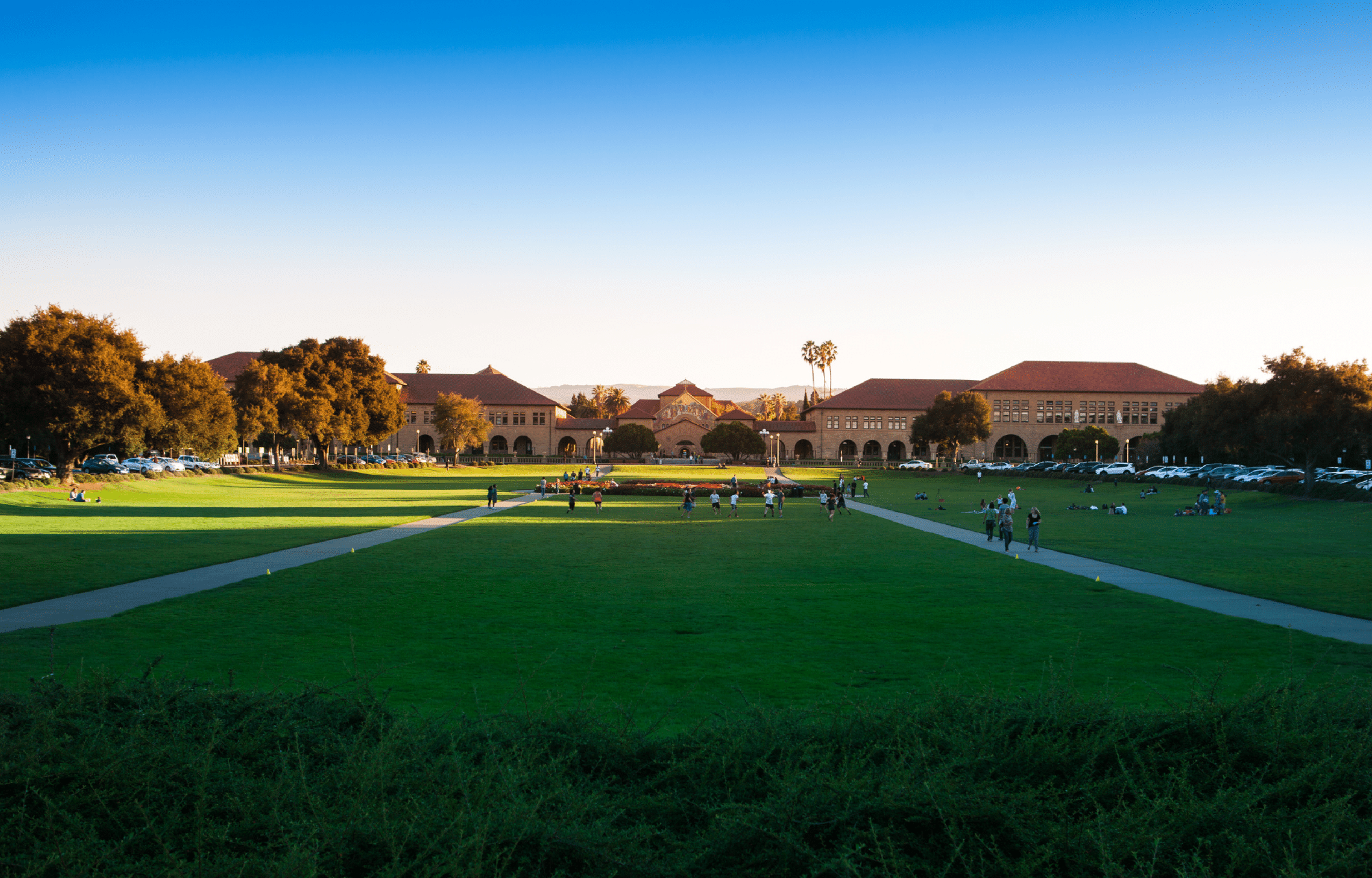How to Get Into the UC Schools: Application Overview, Essay Tips, and More
The UC schools comprise some of the most competitive and top-performing public schools in the entire US. Here is our guide to getting in, complete with application tips, school profiles, and essay prompts.
Posted March 6, 2025

Table of Contents
What are the UCs?
The UCs are all of the schools under the University of California public university system. They include UC Los Angeles, UC Berkeley, UC San Diego, UC Irvine, UC Davis, UC Santa Cruz, UC Riverside, UC San Francisco (graduate only), UC Santa Barbara, and UC Merced.
Many of the UCs are considered some of the best public universities in the United States. Six of them have academic health centers that offer top-ranked specialized care and clinical teaching programs. The UC system also oversees three national labs for the US Department of Energy: the Lawrence Berkeley National Laboratory, the Lawrence Livermore National Laboratory, and the Los Alamos National Laboratory.
There are more than 280,000 students in the UC system and 227,000 faculty and staff. It offers 160 academic majors and 800 degree programs. There is one application for all the UC schools, making the process easier than for many other colleges.
In this article, we’ll outline the UC application, provide tips for getting in, and review the profiles of the nine undergraduate UC schools (all excluding UCSF). Applying to colleges can be a stressful endeavor, but we’re here to provide you with advice and one-on-one guidance. Browse all of our world-class, vetted undergrad coaches here, and read these articles for additional college app info:
- What Looks Good on College Application? 6 Tips to Make Your Application Stand Out
- How to Build the Best Extracurriculars for College
- How to Write a College Application Resume
The UC Application
Deadlines
For those wanting to matriculate in the fall of 2023, the application deadline is November 30. For a spring semester start, the application deadline is July 31. The admissions notifications will all come between March 1-31 and students have until March 2 to submit their FAFSA, GPA verification forms, and the California Dream Act application.
Application Requirements
In order to apply to UC schools, you’ll first create an account and select the term you’d like to matriculate in as well as what kind of applicant you are (freshman, transfer, etc.). Next, you’ll be required to fill out several sections including “About You,” “Campuses & Majors,” and “Academic History,” among others, which involve questions about what campuses you’re applying to, the intended major, family information, and grades from high school.
To submit the application, you’ll need the following things:
- Transcripts
- Unofficial transcripts are used to fill out the “Academic History” section of the application. Fill out the grades exactly as they appear on them, they should perfectly match the transcripts.
- Test Scores
- Annual Income
- ID Info
- Social Security Number
- Citizenship Status
- California Statewide Student ID
- Credit Card/Check
- The application fee is $70 for domestic applicants and $80 for international and non-immigrant applicants. You pay the fee for every campus you apply to. For those who are eligible, UC will waive the application fees for up to four campuses.
We’ll now dive more closely into several parts of the application, including test scores, essays (“personal insight questions”), and activities/awards.
Standardized Tests
As of fairly recently, the UC school system is "test-blind", meaning it will not consider SAT and ACT scores for admissions or scholarships. Students can still choose to submit them with their application, but they will only be used for fulfilling requirements and course placements.
There are places to record scores for any AP exams, IB exams, and the TOEFL/IELTS in the “Test scores” section of the online application. Seniors can indicate which courses they’re planning on taking later that year, and report the ones that they’ve already taken. To see the UC AP credit requirements, click here.
Essays
The UC system refers to the essay section as “Personal Insight questions.” There are a total of eight prompts but applicants only need to respond to four. All have a maximum word count of 350. In addition, there is an “Additional Comments” part where applicants can discuss anything they didn’t address anywhere else in the application, including unusual circumstances.
Here are the eight prompts as well as what UC indicates applicants should think about for each.
1. Describe an example of your leadership experience in which you have positively influenced others, helped resolve disputes or contributed to group efforts over time.
A leadership role can mean more than just a title. It can mean being a mentor to others, acting as the person in charge of a specific task, or taking the lead role in organizing an event or project. Think about what you accomplished and what you learned from the experience. What were your responsibilities?
Did you lead a team? How did your experience change your perspective on leading others? Did you help to resolve an important dispute at your school, church, in your community or an organization? And your leadership role doesn’t necessarily have to be limited to school activities. For example, do you help out or take care of your family?
2. Every person has a creative side, and it can be expressed in many ways: problem-solving, original and innovative thinking, and artistically, to name a few. Describe how you express your creative side.
What does creativity mean to you? Do you have a creative skill that is important to you? What have you been able to do with that skill? If you used creativity to solve a problem, what was your solution? What are the steps you took to solve the problem?
How does your creativity influence your decisions inside or outside the classroom? Does your creativity relate to your major or a future career?
3. What would you say is your greatest talent or skill? How have you developed and demonstrated that talent over time?
If there’s a talent or skill that you’re proud of, this is the time to share it. You don’t necessarily have to be recognized or have received awards for your talent (although if you did and you want to talk about it, feel free to do so). Why is this talent or skill meaningful to you?
Does the talent come naturally or have you worked hard to develop this skill or talent? Does your talent or skill allow you opportunities in or outside the classroom? If so, what are they and how do they fit into your schedule?
4. Describe how you have taken advantage of a significant educational opportunity or worked to overcome an educational barrier you have faced.
An educational opportunity can be anything that has added value to your educational experience and better prepared you for college. For example, participation in an honors or academic enrichment program, or enrollment in an academy that’s geared toward an occupation or a major, or taking advanced courses that interest you — just to name a few.
If you choose to write about educational barriers you’ve faced, how did you overcome or strive to overcome them? What personal characteristics or skills did you call on to overcome this challenge? How did overcoming this barrier help shape who you are today?
5. Describe the most significant challenge you have faced and the steps you have taken to overcome this challenge. How has this challenge affected your academic achievement?
A challenge could be personal, or something you have faced in your community or school. Why was the challenge significant to you? This is a good opportunity to talk about any obstacles you’ve faced and what you’ve learned from the experience. Did you have support from someone else or did you handle it alone?
If you’re currently working your way through a challenge, what are you doing now, and does that affect different aspects of your life? For example, ask yourself, “How has my life changed at home, at my school, with my friends or with my family?”
6. Think about an academic subject that inspires you. Describe how you have furthered this interest inside and/or outside of the classroom.
Many students have a passion for one specific academic subject area, something that they just can’t get enough of. If that applies to you, what have you done to further that interest? Discuss how your interest in the subject developed and describe any experience you have had inside and outside the classroom — such as volunteer work, internships, employment, summer programs, participation in student organizations and/or clubs — and what you have gained from your involvement.
Has your interest in the subject influenced you in choosing a major and/or future career? Have you been able to pursue coursework at a higher level in this subject (honors, AP, IB, college or university work)? Are you inspired to pursue this subject further at UC, and how might you do that?
7. What have you done to make your school or your community a better place?
Think of community as a term that can encompass a group, team or a place — like your high school, hometown or home. You can define community as you see fit, just make sure you talk about your role in that community. Was there a problem that you wanted to fix in your community?
Why were you inspired to act? What did you learn from your effort? How did your actions benefit others, the wider community or both? Did you work alone or with others to initiate change in your community?
8. Beyond what has already been shared in your application, what do you believe makes you a strong candidate for admissions to the University of California?
If there’s anything you want us to know about you, but didn’t find a question or place in the application to tell us, now’s your chance. What have you not shared with us that will highlight a skill, talent, challenge or opportunity that you think will help us know you better? From your point of view, what do you feel makes you an excellent choice for UC? Don’t be afraid to brag a little.
Activities/Awards
In this section, applicants will outline the activities that they participate in outside of the classroom. Every activity or award will be categorized into one of six areas: Award/Honor, Extracurricular, Other Coursework, Educational Prep. Program, Volunteering/Community Service, and Work Experience.
On its website, UC emphasizes that quality is more important than quantity. For this reason, make sure to list only the activities/awards that are most important to you and in which you made the biggest personal impact.
Tuition + Financial Aid
From a bird’s eye view, here is the tuition and estimated cost breakdown for the UC schools for both California residents and non-residents.
2023-24 Estimated Costs for On-Campus Living
Tuition (CA Resident): $13,752
- Tuition (Non-CA Resident): $46,326
Campus Fees: $1,600
Books/Supplies: $1,300
Health Insurance Allowance/Fee: $2,800
Housing and Meals: $18,700 ($15,000 for off-campus)
Personal Transportation: $2,900
Total (for one year): $41,052 ($37,352 for off-campus)
- Total (Non-CA Resident): $73,626 (and $69,926 for off-campus)
Applicants who qualify for financial aid and whose family’s annual income is $80,000 or less will not pay any tuition under the Blue and Gold Opportunity Plan. More than 55% of all UC undergrads don’t pay any tuition. Furthermore, over 70% of undergraduates receive grants and scholarships and the average amount of financial aid awarded last year was $18,000.
You can estimate your financial aid with the UC calculator here.
Getting UC Financial Aid
Part of the UC application includes a section for filling out scholarships; however, the most important thing is that students don’t forget to file either the Free Application for Federal Student Aid (FAFSA) or the California Dream Act (for non-documented applicants). This year, the FAFSA can be filed from October 2, 2022 until March 2, 2023. The FAFSA is used as the primary application for student financial aid.
Scholarships
There are a number of scholarships available to UC applicants which we’ll outline in this section (see The Top 40 College Scholarships for more). Also, there are many local scholarships available for smaller grants, and national ones that are updated constantly. Applying for scholarships, grants, and other forms of financial aid can take a lot of time and effort, but will usually pay off. Set time aside to begin the process early so you’re not as stressed when deadlines approach.
All UCs
The Middle-Class Scholarship Program
This program is designed to help applicants from middle-class backgrounds attend UC schools. It is funded by the state of California and will help students with up to 40% of their tuition and fees. The applicant’s family income must be lower than $191,000 a year to be eligible. Students are automatically considered for this scholarship after they submit the FAFSA; no other documents or applications are required.
The Regents Scholarship
The most prestigious scholarship for incoming freshmen, the Regents Scholarship is given to students for all four years if they meet the renewal criteria each year. They’re selected based on their academic record and are notified at the time of admission. No separate application is required. The award and other perks vary slightly depending on the school.
Here is an overview of some of the top scholarships for each UC school. For almost every internal/institutional scholarship, students just need to submit the general UC scholarship application as well as their FAFSA on time, and they’ll be automatically considered for them. Most of the scholarships require that applicants have a minimum GPA of 3.25 for consideration.
UC Berkeley
Berkeley Undergraduate Scholarship
To be eligible, students must be California residents (or AB540 eligible) with a high school GPA of 4.1 or better. Over 3,000 students are awarded this scholarship each year, and funding amounts vary depending on the level of financial need.
Fiat Lux
To receive the Fiat Lux scholarship, students must have attended one of the program’s partner schools for at least three years and graduated from it, and be eligible to receive need-based financial aid (see the partner high schools here). The award includes the full cost of the CA resident student budget and it can be renewed for up to four years (eight semesters). Students are automatically considered through FAFSA and do not need to submit any additional paperwork.
UC Davis
UC Davis does not outline the specific scholarships that are available to incoming freshmen, but says that they range from $1,000 to $14,000 per academic year and are all awarded on a merit basis.
UC Irvine
UCI uses ScholarshipUniverse for all its scholarships. Students are able to log in directly to ScholarshipUniverse with their UCI netID. The site will then show them both the external and on-campus scholarships that match their profile.
UCLA
Students planning on attending UCLA can apply for scholarships via the Scholarship Portal on the UCLA website (see here). For need-based scholarships, FAFSA will also need to be filled out by the priority deadline every year.
UC San Diego
Ellen and Roger Revelle Scholarship
For entering freshmen, this scholarship is awarded based on academic merit. It is a four-year award of up to $10,000, paid at up to $2,500 each year.
James Avery Scholarship
This scholarship is a four-year scholarship of up to $4000 for African-American students majoring in Performing Arts.
See more UCSD scholarships here.
UC Santa Barbara
UCSB, like UCI, has partnered with ScholarshipUniverse to make applying for and keeping track of scholarships easier. In order to be considered for them, the student must have filled out the FAFSA or the California Dream Act application. The ScholarshipUniverse will automatically match students with the internal scholarships they’re eligible for as well as vetted external ones.
UC Santa Cruz
The UC admissions application is the scholarship application for UCSC. The campus-wide scholarships are awarded by the financial aid office. However, the specific colleges/divisions also award scholarships to students within their areas. Browse the different options here.
UC Riverside
Chancellor’s Scholarship
This UCR scholarship is for incoming freshmen with a strong academic record. No separate scholarship application is required; eligible students will be offered the scholarship upon admission.
Check the full list of UCR scholarships to see if there are more specific ones you are eligible for.
UC Merced
Like many of the other UC schools, by filling out the FAFSA application, students are automatically considered for all UC Merced institutional scholarships. They must have a minimum GPA of 3.25 to be considered for the majority of scholarships. Continuing students should submit the FAFSA as well as a Continuing Student Scholarship Application by March 2, and maintain at least a 3.0 GPA.
UC School Overviews
Each UC school is known for different things and has a different culture. This section will briefly outline each to help inform your application and attendance decisions.
UCLA
Undergrad Class Profile (Fall 2021)
Application Overview:
Applicants: 139,490
Admitted: 15,028
Enrolled: 6,586
Acceptance Rate: 11%
Average GPA: 4.0 (Unweighted); 4.54 (Weighted)
Total Undergrads: 31,600
Demographics:
Asian: 38%
White: 28%
Hispanic: 22%
African American: 7%
Unknown: 4%
American Indian/Alaska Native: 1%
First-Generation: 25%
Countries Represented: 62
What is UCLA known for?
UCLA is frequently the highest-rated UC school, placing just a few spots ahead of UC Berkeley. The most common majors are Biology, Business Economics, Film & Television, Political Psychology, and Political Science. The UCLA School of Theater, Film, and Television is consistently ranked among the best in the nation. The athletic program is also very strong with many national championship titles. UCLA boasts a vibrant startup culture, as well as a popular annual hackathon (“LA Hacks”).
Two other prominent areas of UCLA are research and medicine. The UCLA Medical Center is known for treating level I trauma and the university awards millions to research grants every year. Lastly, about 15% of undergrads are involved in Greek Life and UCLA is often ranked #1 for the best college food, including dorm food.
UC Berkeley
Undergraduate Class Profile (Fall 2021)
Application Overview:
Freshman Applicants: 112,846
Admits: 16,299
Acceptance Rate: 14.4%
Average GPA: 3.86
Total Undergrads: 31,814
Demographics:
Female: 54%
Asian: 39%
White: 21%
Chicanx/Latinx: 19%
International: 12.5%
Native American/Alaska Native: <1%
Pacific Islander: <1%
What is UC Berk known for?
UC Berk is one of the best overall colleges in the US and ranks even higher in just public schools. The most popular majors at UC Berk are Econometrics & Quantitative Economics, Computer Science, and Cell & Molecular Biology. The most renowned areas include Computer Science, Engineering, and Business.
Greek life is also very popular at UC Berk; in fact, almost 30% of all students on campus are members of a sorority or fraternity. Like UCLA, UC Berkeley is strong in research. In fact, it houses several prominent research institutes on campus, like the Space Sciences Laboratory and the Mathematical Sciences Research Institute.
Lastly, Berkeley is pretty well known for activism, for example, the Black Panthers originated from the Berkeley area. It is generally considered one of the most “liberal” campuses in the US, especially the student body itself.
UC San Diego
Undergraduate Class Profile (Fall 2022)
Application Overview:
Applicants: 131,245
Admits: 31,160
Acceptance Rate: 23.7%
Middle 50% GPA: 4.12-4.3 (Weighted)
Total Undergrads: 33,343
Demographics:
Women: 50.7%
Asian American: 37.9%
Chicano/Latino: 20.9%
White: 19%
International: 16.1%
Black/African American: 3%
American Indian/Alaska Native: <1%
Native Hawaiian/Pacific Islander: <1%
What is UCSD known for?
First and foremost, UCSD is known for its beautiful campus. It’s right next to the water, the buildings are interesting architecturally, and there are several forest/wooded areas.
The most popular areas of study are the social sciences (36.6%), biology (17.5%), and engineering (18.8%). Within those areas, the most common majors are Biological Sciences, Computer Science, International Studies, Econometrics & Quantitative Economics, Biochemistry, and Communication, among others. Overall, the sciences and engineering are what UCSD is most known for, including medical areas.
UCSD is also one of the best universities for research as it awards over a billion dollars each year to research funding. For this reason, it has excellent labs, research facilities, and faculty. More than 30% of students study abroad, and it’s got a very good faculty-to-student ratio at 26:1. The athletics are in Division II but do well within it. More so than UC Berk and UCLA, UCSD is known for being less social and more strictly academic.
UC Irvine
Undergraduate Class Profile (Fall 2022)
Application Overview:
Applicants: 119,209
Admits: 25,023
Acceptance Rate: 21%
GPA Middle 50%: 4.08-4.29 (Weighted); 3.86-4.00 (Unweighted)
Total Undergrads: 29,449
Demographics: (Undergrad + Graduate)
Asian: 34%
Hispanic/Latino: 23%
White: 16%
Two or More Races: 4.5%
Black/African-American: 2.1%
Native Hawaiian/Pacific Islander: <1%
American Indian/Alaska Native: <.1%
What is UCI known for?
UCI is known for being one of the most diverse student bodies in the US. Almost half of the 2022 undergraduate graduating class were first-generation college students. The programs that are ranked in the top 10 include Criminology, Literary Criticism & Theory, Education, Clinical Training, and Tax Law, and Legal Writing. The most popular majors are Public Health, Business, Biology, Social Psychology, Criminology, Political Science, and Sociology, among others.
The school also boasts great athletic teams, especially baseball and volleyball. Many of the classes are very small, making it easier for students to develop relationships with professors. The honors college is known as one of the best in California, if not the entire US. The campus is also acclaimed for having five libraries and being only five minutes away from the Newport beaches.
UC Davis
Undergraduate Class Profile (Fall 2022)
Application Overview:
Applicants: 110,189
Admits: 44,661 (Freshman and Transfer)
Acceptance Rate: 40.5%
GPA Middle 50%: 4.06-4.3 (Weighted)
Total Undergrads: 31,162
Demographics (Undergraduate + Graduate):
Asian: 25.6%
White: 25.2%
Hispanic/Latino: 21.6%
Two or More Races: 5.6%
Black/African-American: 2.2%
Native Hawaiian/Pacific Islander: <1%
American Indian/Alaska Native: <1%
Female: 60%
What is UC Davis known for?
Academically, UC Davis is known for several things including Agriculture, Veterinary Medicine, and sustainability. The history of agriculture at UC Davis goes back to its origins; in fact, it began as a research farm extension of UC Berkeley and the teams are commonly referred to as the “Aggies.” The most popular majors are Psychology, Biological Sciences, Managerial Economics, Animal Science, and Biochemistry & Molecular Biology, among others.
The athletics at UC Davis are not as widely known as some of the other, larger UC schools; however, they do boast strong water polo, football, and baseball teams. Davis is also known for being a fun college town close to both Sacramento and San Francisco. Students represent over 50% of Davis’ total population.
UC Santa Barbara
Undergraduate Class Profile (Fall 2022)
Application Overview:
Applicants: 111,000
Admits: 28,701
Acceptance Rate: 25.9%
GPA Middle 50%: 4.15-4.31 (Weighted)
Total Undergrads: 23,196
Demographics (2021 New Freshmen):
Female: 59.3%
First-Generation: 30%
CA Resident: 75%
White: 31%
Chicano/Latino: 24%
Asian: 18%
International: 13%
African American: 4%
East Indian/Pakistani: 4%
Filipino: 3%
Native American: <1%
Pacific Islander: <1%
What is UCSB known for?
UCSB is consistently ranked among the top 10 public universities in the US. The most popular majors are Social Sciences (most commonly Economics), Biology/Biological Sciences (including Marine Biology), Math/Statistics, Psychology, and Communication/Journalism. The schools for Creative Studies (CCS) and Engineering also receive accolades. The Engineering school is smaller than most–offering only five programs–but is top-ranked nonetheless.
Many of the degree programs in CCS are unstructured and students can craft their own curriculum and requirements. This option is good for students who prefer flexibility or want to pursue more unconventional subjects.
Around 10% of undergrads are involved in Greek life. Also, UCSB is known for placing an emphasis on wellness, with many different facilities available to its students including pools/hot tubs, gyms, relaxation areas, and more. Like many of the other UC schools, UCSB sits right next to the pacific ocean and boasts great weather for the majority of the year.
UC Merced
Undergraduate Class Profile (2020-2021)
Application Overview:
Applicants: 29,914
Admits: 27,046
Acceptance Rate: 90.4%
GPA Middle 50%: 3.5-4.08
Total Undergrads: 8,321
Demographics:
First-Generation: 73%
Female: 51.7%
CA Residents: 99%
Hispanic: 54.3%
Asian/Pacific Islander: 20.6%
White: 9.5%
African-American: 4.2%
What is UC Merced known for?
Merced is the most recently opened branch of the UC school system. The majority of students are in the Engineering and Social Sciences/Humanities/Arts Schools. The highest-ranked major is Biology/Biological Sciences, which is also the most popular one. Other common ones include Psychology, Social Sciences, and Business.
UCM is also a great option for those who are looking for a higher likelihood of receiving financial aid. In fact, in the year 2021-2022, 89% of UCM students received some form of financial aid; the average annual aid is $21,477. It is also the most ethnically diverse of all the UC campuses, in addition to being the youngest.
UC Riverside
Undergraduate Class Profile
Application Overview:
Applicants: 54,687
Admits: 37,262
Acceptance Rate: 68.1%
GPA Middle 50%: 3.81-4.20
Total Undergrads: 22,866
Demographics:
Female: 55%
First-Generation: 48%
Chicano/Latino: 35.04%
Asian: 31.97%
White: 12.92%
International: 10.25%
Two or More Races: 4.59%
African American: 2.81%
What is Riverside known for?
UCR is the only public research university in inland Southern California and is top-ranked for social mobility. It was also ranked first for Hispanic enrollment among top universities and second for financial aid. The most popular majors at UCR are Biology, Business, Psychology, Business Economics, and Computer Science.
Riverside feels like a smaller town while still being relatively close to Los Angeles. It also admits the second most people of all the UCs at almost 40,000, after only UC Davis.
How to Get Into the UCs: Application Tips for Success
Now that we’ve covered the UC application and what each school is known for, we’ll dive into the tips on how to make your application stand out.
1. Make informed decisions about the campuses that you choose to apply for.
While you only need one application for the entire UC school system, you have to pay for each campus. Choose the campuses that you actually want to go to. There are differences in the major offerings of different campuses so make sure that your top choices have your intended majors.
2. Brainstorm the essays and figure out your narrative before beginning to write drafts.
The UC system provides a worksheet so applicants can begin to think about their responses to the personal insight questions (find it here). Take advantage of it and spend time reflecting on the story you want to tell. Once you have an outline, write the drafts. Then, read them out loud to get an idea of how they will sound to someone on the admissions committee. Make any edits and then have a Leland undergrad coach, mentor, or other trusted peer review them and provide feedback.
As you complete these essays, make sure to be succinct, answer the questions directly, and provide examples. Pretend that you are answering an interview question and give evidence for every point made. Be detailed and specific. Remember, the adcom cannot read your mind; they will not know anything that you do not explicitly tell them.
3. Address potential weaknesses in your application.
The UC school system likes to emphasize that it examines applicants holistically, meaning that they do not heavily favor any one aspect–like test scores or GPA–over others. For this reason, if you fall short in one area, you can make up for it in others. For example, if you have a lower GPA, use the additional information to explain extenuating circumstances, and try to make your profile stand out in other ways. Maybe you were the president of a high school club, volunteered at an organization where you expanded initiatives, ran the political campaign of a local politician, or did any number of other activities that compensate for a weaker academic record.
4. Show passion in the personal insight questions and demonstrate how you’ll fit into the school.
As much as you are looking for a program in which you’ll be a good fit, the school is also looking for students who will mesh well with the culture. The essays are the only part of your application that you truly hold full control over, so use them to paint a picture of someone who has individualized interests and passions. What excites you? What brings you joy? Be genuine and provide context for the other areas of your application.
Relatedly, don’t use the personal insight questions to simply extrapolate on your resume, GPA, or other parts of your application. The admissions committee already knows those things. Use the small space you have to shed light on the many other areas of your candidacy. You’re an interesting and multi-faceted person, show the adcom that!
5. Provide context when applicable.
The “Additional Comments” section gives students the opportunity to explain certain aspects of the application that may have been affected by extenuating circumstances like COVID-19, language barriers, work schedules, or anything else. Providing context for your achievements in this part will paint a more complete picture of who you are and what you bring to the table. For example, if you had to help take care of siblings while your parent(s) worked from home during COVID and because of that, you had less time to study for a semester, tell the adcom that.
Not everyone will need to complete this section. However, for those who find their applications affected by circumstances outside of their immediate control, it can be helpful to explain any gaps or shortcomings.
Where Can I Start?
We know that applying to college is a difficult process in an already stressful time period. Working with an expert coach can alleviate some of the anxiety and uncertainty surrounding the applications. Below are some of our featured undergrad coaches, but you can browse all of them here. Also, check out our Undergrad Library, where we are constantly adding free resources and expert-written articles.
Coach Recommendations
Here are some of our highest-rated college admission coaches.
Final Note
Here at Leland, we provide you with the content, community, and coaching that you need to get into your dream school and accomplish other ambitious goals. Sign up today to gain access to additional free resources, community events, small group classes, world-class coaching, and more.



















